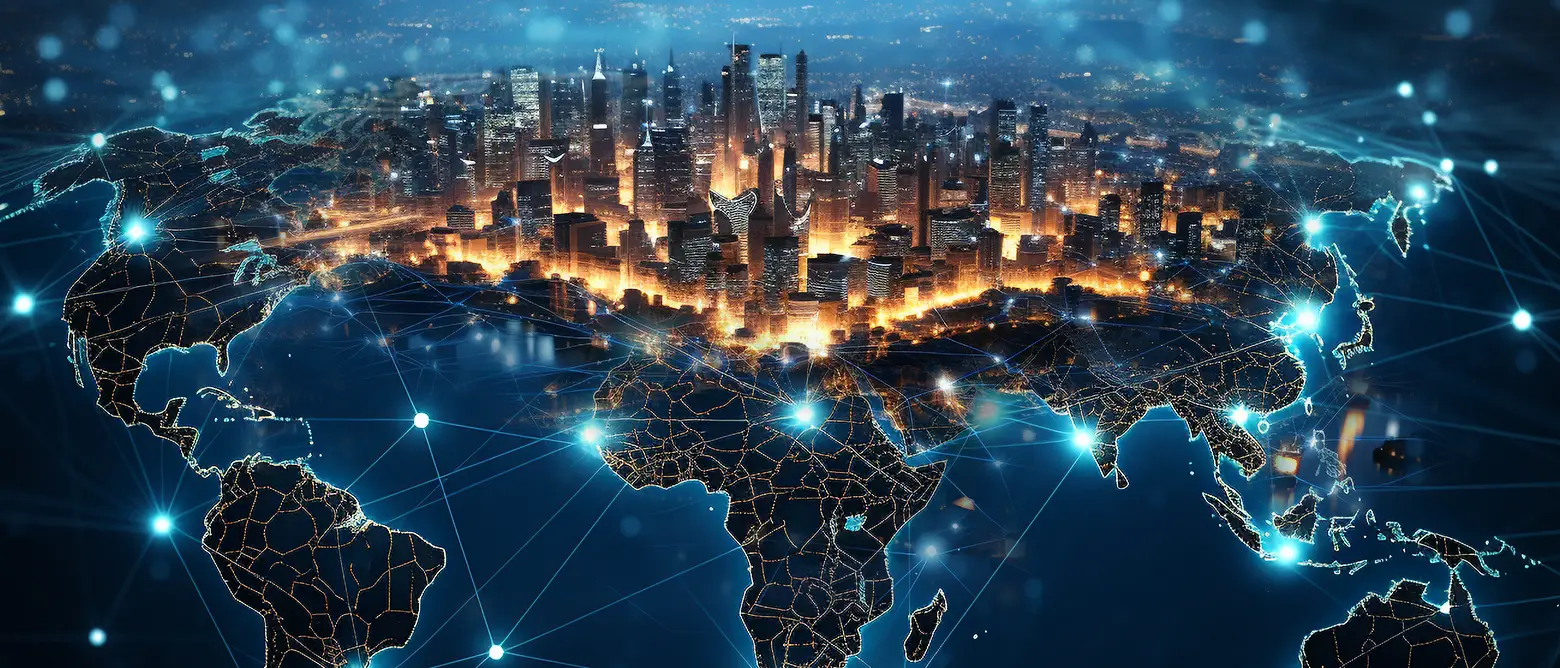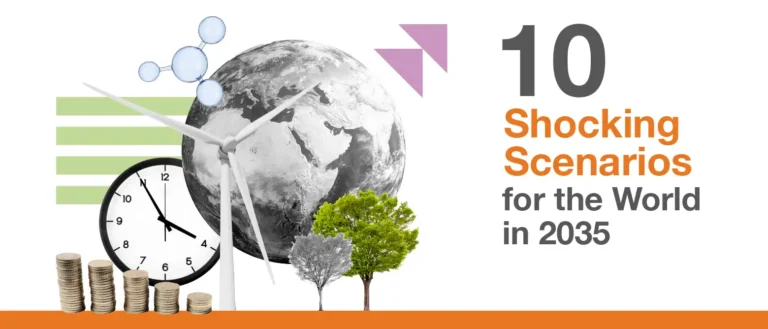UPDATE ON "From Ballots to Bullets: Unveiling Global Shifts in 2024" by David Chmiel

The 6th of October was, for me, a day like many others – I spent it talking about the state of the world. It started with a board briefing for a client on how current events are altering the economic and political environment in Latin America – a region integral to their business.
It ended over dinner with like-minded souls in which the conversation touched on Taiwan, Ukraine and the state of US electoral politics. The Middle East, it must be said, figured little in the day’s discussions given its comparative stability at that time. Yet, only a day later, the world would be shocked by the horrific attacks by Hamas on Israel and, since then, much of my time has been spent watching that conflict and assessing its broader impacts. It’s one that has now expanded beyond Israel and Palestine following the coalition strikes against Houthi rebels threatening shipping in the Red Sea and it demonstrates that our world can – quite literally – change overnight.
Surveys of LMA members consistently show that geopolitics is now considered the principal source of risk to the loan market and the global economy. Even where respondents cite other challenges such as regulatory changes or economic uncertainty, those risks are not independent of domestic and international politics. As 2024 gains speed, the question becomes what the year ahead may hold in these very uncertain times.
Electoral and Policy Volatility
2024 will be a year of elections globally, including in many of the world’s most important economies. However, the outcome of those elections and the policy agendas that flow from them remains highly speculative. Global electorates continue to show a propensity to reject traditional, establishment political parties and leaders in favour of populists – Argentina and the Netherlands being two late examples from 2023. Even where traditional parties retain or regain power, they are now much more willing to deviate from traditional norms of policy – often, but not always, in favour of greater regulation and intervention. This is a consequence not only of domestic economic challenges, but of the evolving nature of our international security environment. The era of big government remains most decidedly back – consider the interventionist approach the US Securities and Exchange Commission is adopting to regulation – and this will continue to impact the loan market and broader economic performance.

Looking at the 2024 electoral calendar in the Indo-Pacific, Taiwan has just gone to the polls and Indonesia and India, among others, will soon follow. These are all countries that are economically critical to global supply chains while also becoming integral players in the increasingly competitive security environment in that region. With Taiwan’s Democratic Progressive Party securing a third presidential term – despite warnings from China – tensions across the Taiwan Straits are unlikely to abate soon. In Africa, there will also be several elections in the year ahead including in South Africa, where declining economic security may test the strength of the ANC’s thirty-year old legislative majority. In Europe, elections for the European Parliament in June will set the tone for policy direction across the European Union and offer a very visible test of the extent to which populists continue to disrupt regional politics. While Russia’s presidential election results are almost certainly a foregone conclusion, that event in March could act as a window on Russians’ tolerance for sustained conflict in Ukraine. In the UK, Rishi Sunak’s mandate is nearing its end both constitutionally and, based on polling, electorally. Crossing the pond, Mexico will elect a new president and congress in June, thereby setting the political agenda in a country that is increasingly important to the global economy while toying with economic nationalism. It will also influence the perennial issue of the security of the US-Mexico border – an issue that is likely to figure prominently in US elections in November. The race for the US presidency is, arguably, the most volatile and consequential that it has been in decades and is one in which neither presumptive nominee – President Biden and former president Trump commands appeal with floating and independent voters. All told, these elections may present a very different global political environment at the end of the year than exists now.
Trade and Investment Increasingly Aligned with Security
In 2023, Mexico overtook China to become the single-largest trading partner of the United States. This data point offers a useful insight into the continued trend for companies around the world to “nearshore” or “friend-shore” manufacturing. In part, it is driven by a conscious decision by businesses to peremptorily minimise the risk of supply chain disruptions. But it is also a result of increasingly concerted efforts by governments to push companies in that direction. Moreover, international security is providing the reasons for this – whether it be the targeting of shipping in the Red Sea or a desire to minimise economic dependence on strategic competitors such as China.

Looking forward, the momentum favours even more security-related blocks on trade and capital flows. Last year, China banned exports of strategic commodities such as graphite, gallium and germanium together with the equipment necessary to separate and process rare earth minerals – all critical to both defence and civilian sectors. Regulators in the US and elsewhere are questioning the merits of some cross-border investment into China, arguing that this capital is enhancing China’s strategic advantages in critical industries such as clean energy and quantum computing. But true decoupling is often easier said than done and cannot be achieved without significant further realignment of national economies. Governments around the world are trying to do that – for example, in semiconductor production – but the levels of investment required may not be feasible in times of constrained budgets and ballooning national debts. The rise in global conflict is also placing considerable pressure on supply chains and taxing the capacity of resource sectors that are increasingly constrained from expansion due to concerns around the environmental consequences of such activity. This long-term trend of subordinating global trade to the needs of national security will remain a key source of risk to business so long as the broader geostrategic environment remains unsettled.
The Return of War
Entering 2024, the world confronts two major regional wars – in Europe and the Middle East – while tensions rise in other conflicted spaces. Ukrainian government officials acknowledge that last summer’s long-anticipated counteroffensive against Russian forces fell short of the territorial gains for which many had hoped. While polling shows that a majority of Ukrainians still support the war, that support has declined over the past year. It is now a war of attrition and Ukraine faces the dual challenge of continuing to counteract Russia on the battlefield while keeping western governments committed to its replenishment and resupply. In the Middle East, the war between Israel and Hamas in Gaza has now, for all intents and purposes, escalated into a regional conflict with the engagement of Houthi rebels in Yemen. It risks further escalation should Iran intervene directly or if the security situation in the West Bank or on Israel’s border with Lebanon were to deteriorate further.

Of course, much attention focuses on the risk of conflict over Taiwan. Even though polling of the Taiwanese people reveals little appetite for independence – as opposed to maintaining the status quo – Beijing is unlikely to react favourably to January’s election results, as evidenced by comments Xi Jinping made about the Taiwan question in his new year message. But any radical escalation of pressure against Taiwan is not without risk to China – economically, militarily or reputationally – and the prospects of full-scale conflict are, consequentially, low for now. However, even if China was to resort to measures that it has used before such as military exercises closing the Taiwan Straits, these present material challenges to global trade flows and have the inherent risk of escalating inadvertently. Beyond the Taiwan Straits, late 2023 even saw heightened risk of conflict in Latin America as Venezuela laid claims to oil-rich regions of neighbouring Guyana and prompted countries such as the UK and Brazil to deploy military resources to the region in efforts to deter any risk of aggression by Venezuela.
These are only some of the issues on which I am keeping an eye in a year in which both domestic and international political and economic institutions will continue to be buffeted by global waves of disruption. There was a time when we described this as the new normal. It is now just normal and there are very few signs of these tempestuous geopolitical waters calming. The loan market will need to remain as geopolitically aware in the year ahead as it was in the year just ended.




